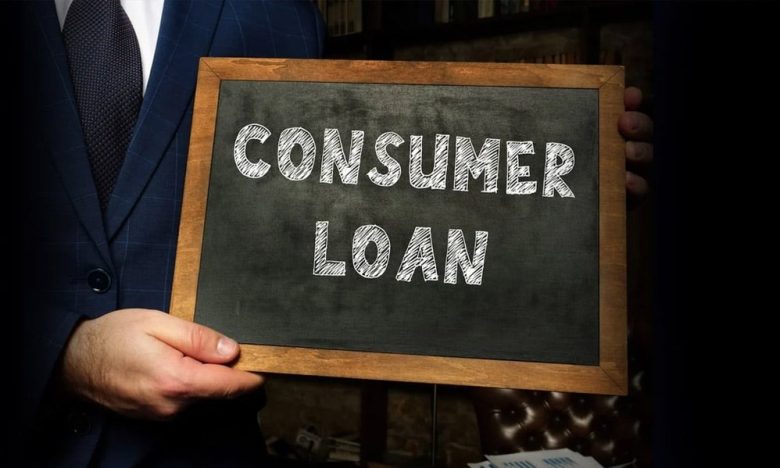Modern financial planning relies on consumer loans to facilitate large purchases or debt consolidation without depleting your savings. Understanding the process, benefits, and risks of consumer loans can help you make informed financial decisions. This comprehensive guide will help you confidently manage your consumer loans, whether you’re taking out a first loan or refinancing. We cover every aspect of consumer loans to help you decide if it’s right for you, from loan types to application and repayment. Technology and regulations are transforming lending, so it’s crucial that borrowers understand their options and rights.
What is a Consumer Loan?
Consumer loans are used for personal purchases, not for business or investment purposes. Secured consumer loans are also available, but these loans are typically unsecured. Consumer loans are intended to finance large purchases, consolidate high-interest debt, and cover unexpected needs.
Consumer loans offered by banks, credit unions, online lenders, and peer-to-peer platforms vary in terms, interest rates, and qualifications. You can borrow from a few hundred to tens of thousands of dollars, depending on your credit profile and the lender’s policies. Most consumer loans have fixed interest rates and repayment plans, ensuring predictable monthly payments.
Consumer loans are popular for their flexibility and fast approval times. Unlike credit cards, consumer loans provide both a lump sum payment and a repayment plan. Borrowers seeking a clear repayment schedule find this structure appealing.
Types of Consumer Loans:
Personal loans are the most common type of consumer credit and offer exceptional flexibility. These unsecured loans have fixed interest rates ranging from 6% to 36%, depending on your credit score and other variables. Personal loans are well-suited for debt consolidation, home improvements, medical expenses, and major purchases.
Auto loans use your car as collateral. Because the car serves as collateral, these loans have lower interest rates than unsecured personal loans. Banks, credit unions, and car dealerships offer auto loans with terms ranging from three to seven years.
Federal and private student loans subsidize education. Federal student loans offer income-driven repayment plans and forgiveness programs. When government assistance doesn’t cover all costs, bank and online student loans may be necessary.
Home equity lines of credit (HELOCs) and home equity loans allow homeowners to borrow money based on their equity. Secured loans offer lower interest rates but put your home at risk if you default on your mortgage. Home equity loans offer a fixed, one-time payment, while HELOCs offer revolving credit with a variable interest rate.
What to Consider Before Applying for Consumer Credit:
Loan approval and interest rates depend on your credit score. People with excellent credit scores above 750 can get the best rates, while those with a credit score below 650 may pay higher rates or face problems getting approved. Before applying, check your credit history for errors and try to reduce your debt or improve your payment history.
Interest rates significantly impact loan costs. Compare annual percentage rates (APRs) from different lenders, as they can vary considerably, even for consumers with similar credit histories. Fixed rates guarantee payments, while variable rates may be lower initially but gradually increase. Keep in mind that longer loan terms lower monthly payments, but you also pay more in interest.
Check your debt-to-income ratio to ensure your loan payments are affordable. Most lenders prefer a debt-to-income ratio of less than 36%, including new loan payments. Calculate this ratio based on all your debt (including credit cards, mortgages, and loans).
Compare the purpose of the loan with your financial goals. A student loan or home renovation loan is often a better investment than a loan for a vacation or luxury goods. Consumables don’t last long enough to recoup the interest, so only borrow when necessary.
Applying for a Consumer Loan:
Research and compare lenders before applying. Online lenders may offer faster approval and financing, but traditional banks often offer attractive rates to existing customers. If you qualify for a credit union, consider joining one.
Before applying, you’ll need to provide proof of income, employment, bank statements, and ID. These documents streamline the application process and show the lender that you’re ready. Lenders may request additional documentation depending on your financial situation or the loan amount.
Compare pre-approved quotes from multiple lenders without impacting your credit score. A pre-approved quote estimates interest rates and terms based on basic financial information, allowing you to compare. Once you’ve chosen the best option, you can officially apply.
Read the loan terms carefully before accepting. Review the interest rate, fees, repayment period, and prepayment penalties. Understand all terms and restrictions, including the consequences of missing a payment or paying off the loan early. Ask questions and negotiate where possible.
Managing Consumer Loans:
Establish a loan repayment budget and stick to it. Automatic payments can prevent late payments, which can damage your credit score and lead to financial loss. It is advisable to schedule payments right after receiving your paycheck to ensure funds are available when needed.
Use your lender’s online portal or mobile app to track your loan balance and payments. Monthly principal and interest payments can be useful for tax and financial planning. Some lenders offer the option to track your repayment progress and assess additional payments.
Pay down as much as possible to lower the interest and shorten the loan term. Even small extra payments can save hundreds or even thousands of dollars over the life of the loan. Make sure your lender applies any extra payments to the principal rather than to future installments.
If financial difficulties are impacting your ability to repay, please reach out to your lender as soon as possible. Consumers experiencing financial hardship can apply for emergency assistance or temporary payment deferrals with various lenders. Proactive communication often yields better results than delayed payments.
The Future of Consumer Lending:
Technology is transforming consumer finance, with artificial intelligence and machine learning improving underwriting and risk assessment. These developments are speeding up approval processes and can improve access to loans for consumers with poor creditworthiness. We are increasingly using utility bills and rental histories to assess creditworthiness.
Digital lenders and fintech startups offer competitive rates and streamlined application processes, posing a threat to traditional banking. Mobile apps and online account management solutions are improving the user experience on these platforms. Lenders may face varying regulatory oversight and customer protections.
Open banking and data sharing can offer borrowers more personalized loan options and rates. These innovations can strengthen the competitive position of lenders and lower borrowing costs for consumers. However, data privacy and security remain crucial in this emerging system.
Economic and interest rate factors will continue to influence the availability and price of consumer credit. Considering these economic factors can help borrowers time their applications and choose between fixed and variable interest rates.
Smart Lending Decisions:
Strategic and ethical consumer loans can be an excellent financial management tool. Success requires financial knowledge, careful comparison, and strict repayment. Remember that borrowing carries risks, so your debt choices should align with your financial goals and repayment capacity. Staying informed about new loan products, regulations, and market conditions will help you make the best decision for your situation. Smart planning can maximize the benefits of consumer loans and minimize the risks when consolidating debt, making a major purchase, or investing for your future. Carefully research your options, read the terms carefully, and choose a loan that suits your current and future financial situation.
FAQs:
1. What credit score is required for a consumer loan?
Most lenders require a minimum credit score of 580-600 for consumer loans, but customers with a credit score above 700 can get the best interest rates. Some online lenders work with customers with lower credit scores but charge higher interest rates to compensate for the risk.
2. Can I repay my consumer loan early without penalty?
Many consumer loans allow early repayment without penalty, but some do charge an early repayment fee to cover missed interest payments. Read the loan terms before agreeing to early repayment to understand the limits and fees for early repayment.
3. How long after loan approval will I receive my money?
Online lenders typically issue loans the same day or the next day. Traditional banks issue loans within 2–7 business days, but complex loans, like mortgages, can take several weeks.
4. What happens if I miss a payment on a consumer loan?
Missed payments can result in late fees and a lower credit score after 30 days. Persistent late payments can lead to default, collections, and legal action. If you foresee any potential payment difficulties, please reach out to your lender promptly to explore possible solutions.
5. Is it better to get a consumer loan from a bank or an online lender?
Discounts based on customer relationships and personalized service are advantages of banks, but online lenders offer faster approvals and more competitive interest rates. Compare interest rates, fees, customer service, and funding speeds from multiple lenders to find the best deal.




